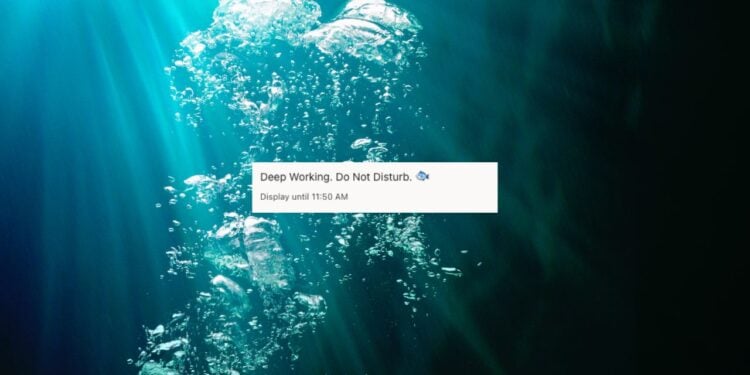- MIT Computer Scientist Cal Newport’s book “Deep Work” describes shallow work as monotonous work tasks that are simple and don’t add new value to a job.
- Workplaces can boost success by designating spaces for focused work where people can concentrate without interruption.
- Fixating on quick tasks kills productivity and slows down progress on more impactful projects.
The appeal of work tasks that are quick to finish is hard to deny. They make you feel productive, but don’t take a lot of concentration. They also don’t usually move strategic projects along, killing productivity on work that can help companies succeed.
What is “Shallow Work” and what are its impacts on workspaces?
Calling any work “shallow” may sound condescending, but MIT Computer Scientist Cal Newport uses this term very technically in contrast to the term “Deep Work,” which is also the title of his book.
Newport defines shallow work as “non-cognitively demanding, logistical-style tasks, often performed while distracted. These efforts tend to not create much new value in the world and are easy to replicate.”
The anthropological work of David Graeber’s confirms Newport’s suspicion that most work is shallow work. These are the jobs that will be automated first — jobs that are monotonous and can be done by easily replaceable workers.
Newport believes that the emphasis on shallow work is prevalent in highly skilled professions and not just lower-paying, less-skilled jobs.
Too much shallow work often appears as caring too much about emails, meetings, and the technology-driven distractions that occur throughout the day, but not enough about important projects and bottom lines.
The consequence of too much shallow work is the fragmentation of worker and employer attention spans. When you work on a project and frequently flip to another project or task — however important — this takes away from the quality of work.
If there’s an important project due, the quality of that project is markedly improved when the worker who is responsible for it is not pressured to constantly check or search for emails, and is not worried about being interrupted by coworkers.
While shallow work might make it look like you are working hard — and no doubt it keeps the day busy — it is very detrimental to progress. The focus on these shallow tasks is easy to maintain because the tasks are simple to do and usually make you feel productive because several can be done very quickly.
It does not take much to quickly respond to an email, but it does take discipline to sit down and concentrate solely on one important project for a few hours.
This is one reason that Graeber, in agreement with Newport, noted that many workers can get away with delaying the most important tasks for months without any detection. This may be what quiet quitting truly is, rather than just fulfilling job tasks without going above and beyond them.
Deep Work is the solution to Shallow Work
Cal Newport defines deep work as “professional activities performed in a state of distraction-free concentration that push your cognitive capabilities to their limit. These efforts create new value, improve your skills, and are hard to replicate.”
Of course, emails need to be read and responded to, and sometimes meetings are necessary. But too often these are given priority — to the detriment of highly impactful projects.
The key to improving productivity in professional workspaces is to design them to enable deep work.
Setting up offices with deep work in mind means having spaces where people can work without disruption for several hours at a stretch. To make this possible, the office culture needs to shift to make sure distracting people in those spaces is not allowed — unless there is a dire emergency.
The vast majority of emails each day are so insignificant that it would improve progress if looking at email only once per day was an established expectation.
Another way to encourage deep work is to assign projects that encourage employees to learn new, complex skills, which naturally demands deep concentration.
Shallow work’s predominance in professional work spaces is the result of employers and employees giving in too easily to the principle of least resistance. Especially when everyone else in a workspace is captivated by the trivial, deep work is rarely cultivated.
Employers would benefit from creating places in their office where workers can go to work on bottom-line priority projects without interruption.
This will not only make offices much quieter, but it is also what will create more success in the long run.



 Dr. Gleb Tsipursky – The Office Whisperer
Dr. Gleb Tsipursky – The Office Whisperer Nirit Cohen – WorkFutures
Nirit Cohen – WorkFutures Angela Howard – Culture Expert
Angela Howard – Culture Expert Drew Jones – Design & Innovation
Drew Jones – Design & Innovation Jonathan Price – CRE & Flex Expert
Jonathan Price – CRE & Flex Expert













